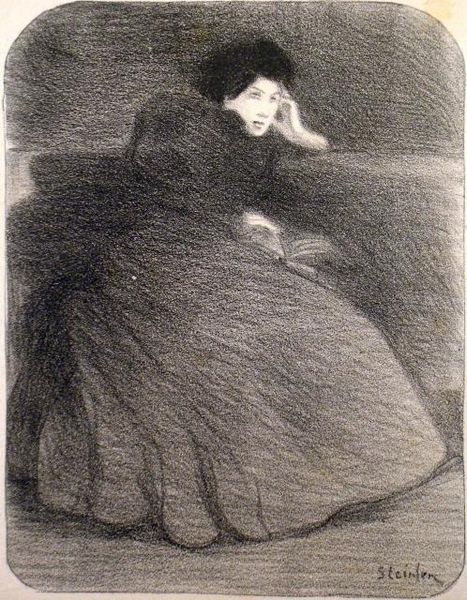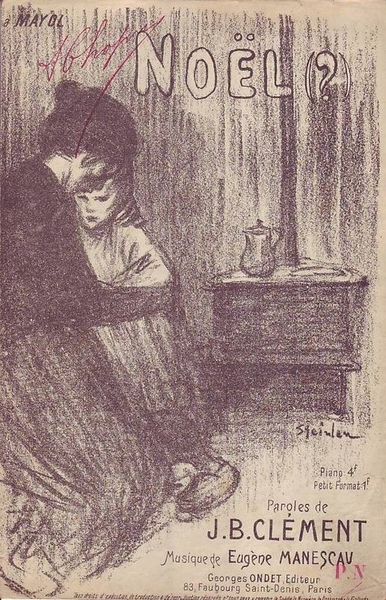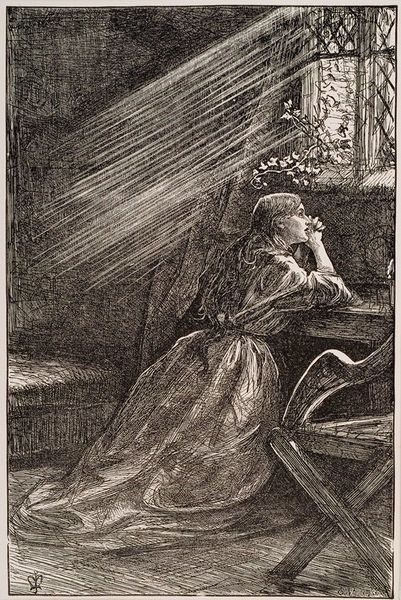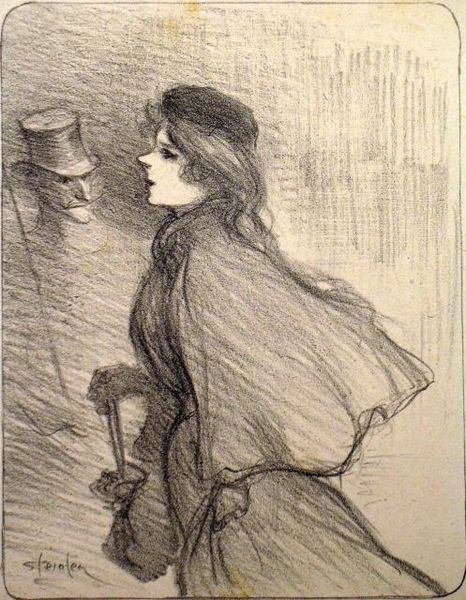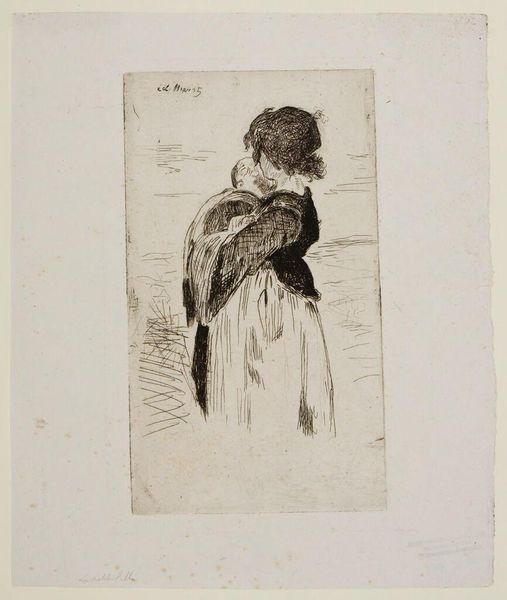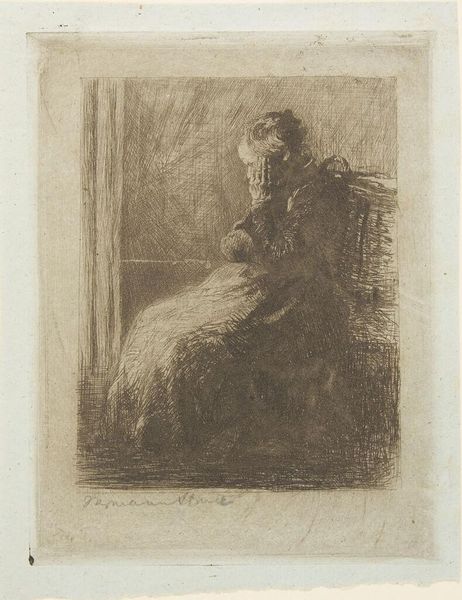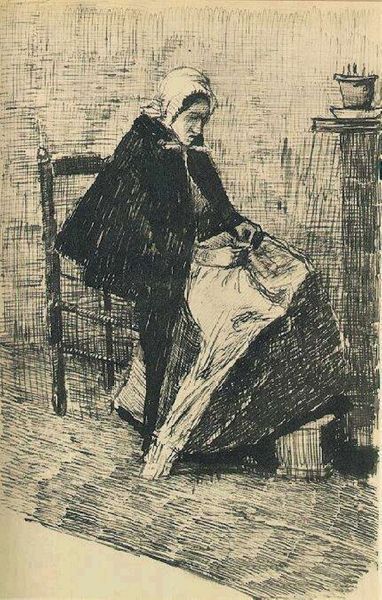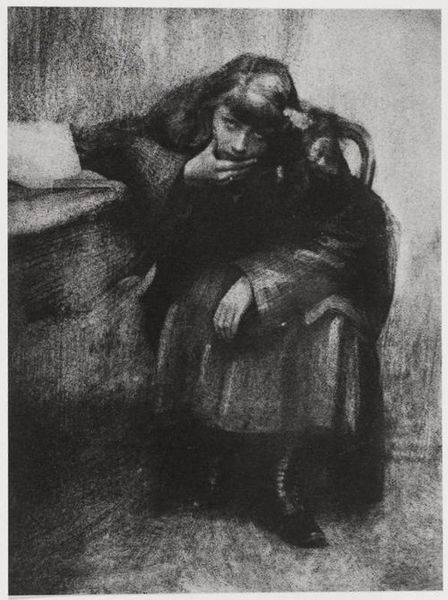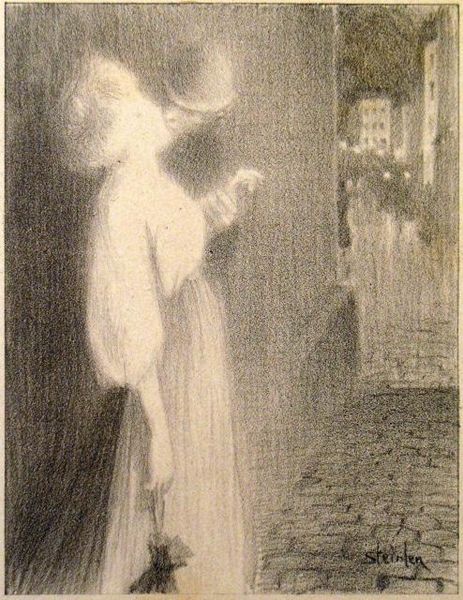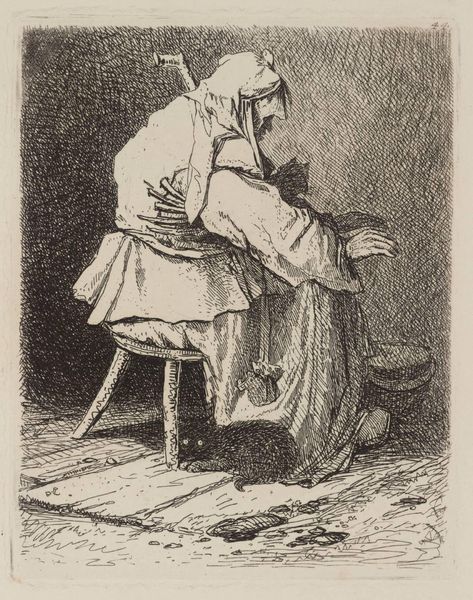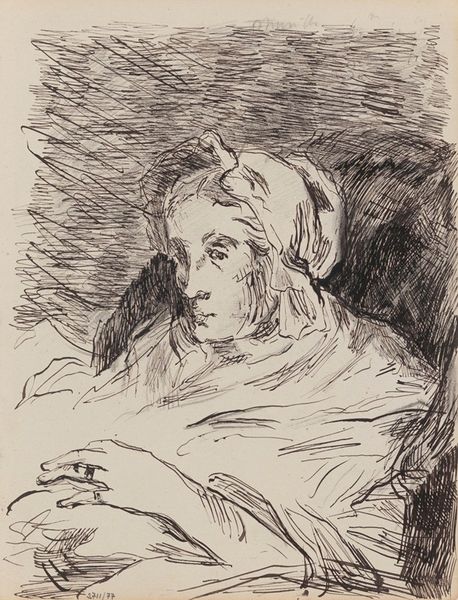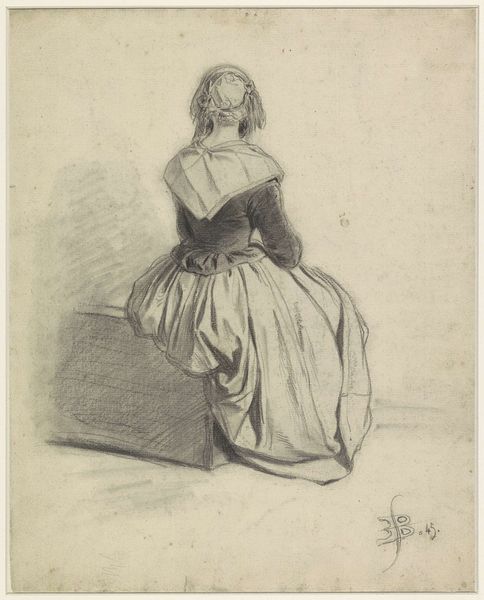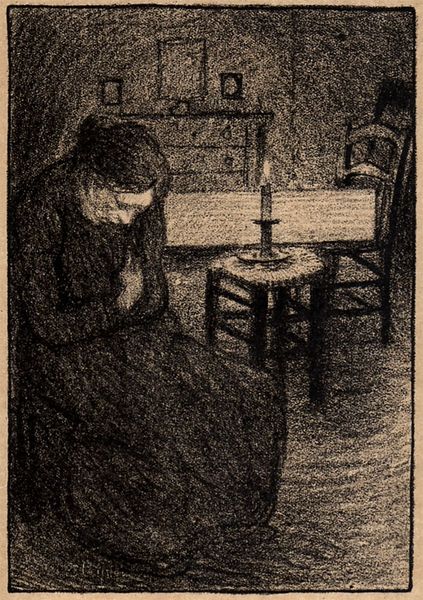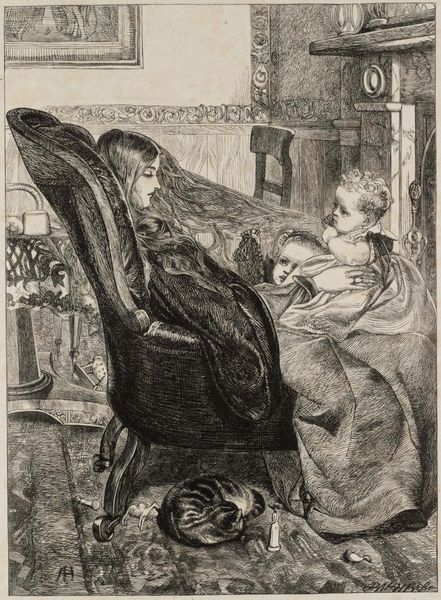
drawing, print, charcoal
#
portrait
#
drawing
# print
#
charcoal drawing
#
pencil drawing
#
symbolism
#
portrait drawing
#
charcoal
Copyright: Public domain
Curator: Here we see Thèophile Alexandre Steinlen's 1897 drawing, "Chanson Frêle," executed in charcoal. The symbolism feels thick, yet the execution seems delicate. What catches your eye first? Editor: Definitely the somber mood. She looks so withdrawn, almost burdened. And those cats nestled beside her add to the feeling of isolation, of finding comfort only in animal companionship. It speaks volumes about the societal constraints women faced. Curator: Absolutely. Cats in art often symbolize independence and the feminine mystique. But Steinlen, especially with his association with the Parisian avant-garde and Le Chat Noir cabaret, frequently used feline imagery to depict marginalized communities, their silent resilience, almost echoing in this woman's withdrawn gaze. Editor: It makes you wonder about her story. What "frail song" is she singing? Is it a personal lament or perhaps a broader critique of the oppressive structures that confined women's voices at the time? The title juxtaposed with her serious expression suggests a struggle. Curator: The soft, almost melancholic light achieved through charcoal is evocative. The textures also enhance this, don't you think? Note the rough hatching that creates both a palpable texture for her dress but a gentleness where it creates the illusion of fabric. It's almost as though Steinlen wants to hint to us this isn't a stark or hopeless portrait. Editor: I agree, that contrast gives it a complexity. But beyond the immediate aesthetics, this image serves as a powerful reminder. We have to constantly challenge patriarchal narratives and amplify the silenced voices that "Chanson Frêle" hints at. Curator: Indeed. Works like this remind us that the symbols we interpret must constantly be placed into broader dialogues that acknowledge how meaning morphs over time. The silent "Chanson Frêle" still speaks to the fragile balance between self-expression and societal constraints, doesn't it? Editor: Absolutely. I’m left with a feeling of needing to listen more intently to those unheard songs of the past, and more importantly, the present.
Comments
No comments
Be the first to comment and join the conversation on the ultimate creative platform.
